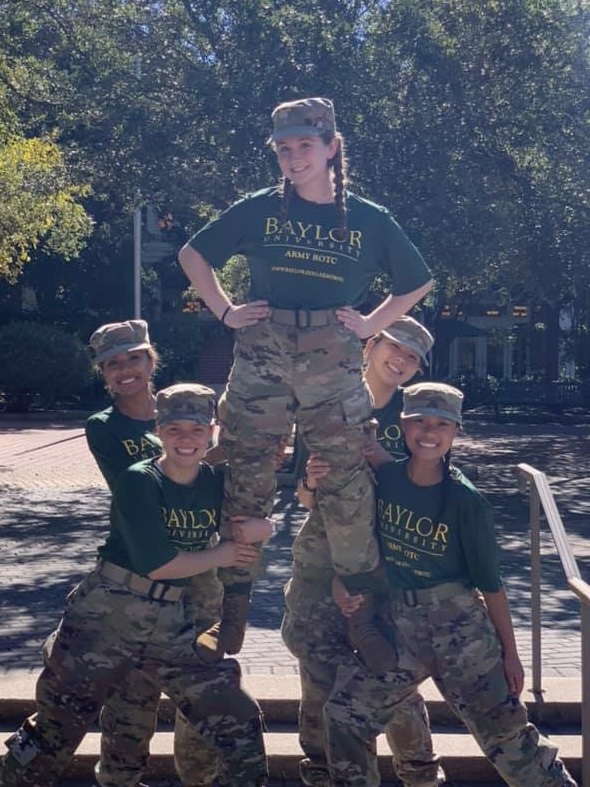By Raylee Foster | Staff Writer
Since 1976, Baylor Army ROTC has included both men and women, but women were only approved for military combat 10 years ago. 20% of cadets in Baylor’s ROTC program are women, and multiple have aspirations to join in active combat.
In January 2013, Baylor’s reaction to active duty opportunities was not entirely positive, according to The Baylor Lariat. A female member of the ROTC said back then she did not want to obtain an active duty position, and was unsure if that was where she would be placed now.
But responses have changed over the past 10 years as Baylor ROTC female cadets now view this opportunity as empowering.
Manteno, Ill., senior Camille Casillas said she did not go into college seeking out a position in the military. Her family had a history in the military, however it wasn’t until the COVID-19 pandemic that she began seeking a position there and fell in love with it. She said the community has been welcoming and encouraging to her.
“It feels very empowering,” Casillas said. “There are many leadership opportunities, I don’t speak on behalf of all women but it’s really nice to be a part of a program where you feel included in the conversation and that people are supporting your wellbeing at all times.”
Though the approval for active duty positions opened many doors for women in service, there are still barriers. According to Brookings Publications, women account for one of six Americans in uniform. Winter Park, Fla., senior Abbey Jackson said Baylor’s inclusive environment for ROTC women encourages them to succeed.
“It’s no secret we’re definitely the minority here, but I think Baylor especially does a good job making sure that we have the tools to succeed, have the tools to get out of our comfort zone and make sure that we are the best leaders we can be regardless of our gender,” Jackson said.
Although she has not graduated yet, Jackson said she hopes her experience in the future resembles the community and support she has had at Baylor. She said the active duty opportunity was one step toward equality for women and her experience at Baylor has continued to foster feelings of empowerment.
“I can’t exactly speak for every other program or every other branch because we’re not there yet, but I do really hope that when we graduate, we continue to see this empowerment for women in the military,” Jackson said.
Evergreen, Colo., senior Tori Lindsey, public affairs official in Baylor ROTC, said the university encourages men and women alike, and that her position has helped her grow throughout her time in ROTC.
“The program really does set women and men up for success. They provide a lot of opportunities that allow you to grow and allow you to become a better leader,” Lindsey said. “It is really empowering to be a woman in a male dominated profession, just to be able to have the opportunity to do that.”
Currently, women comprise 14% of the Army’s enlisted force and 19% of its officer corps, according to the US Army. Lindsey said she encourages students, both in high school and college, to consider ROTC if they feel called to it.
“We were all girls in high school in that same position thinking that we could never do it,” Lindsey said. “I would say challenge yourself, expect more from yourself and know that you’re capable. There are people in this program that want you to succeed and want to see you grow to be an amazing officer that you have the potential to be.”



